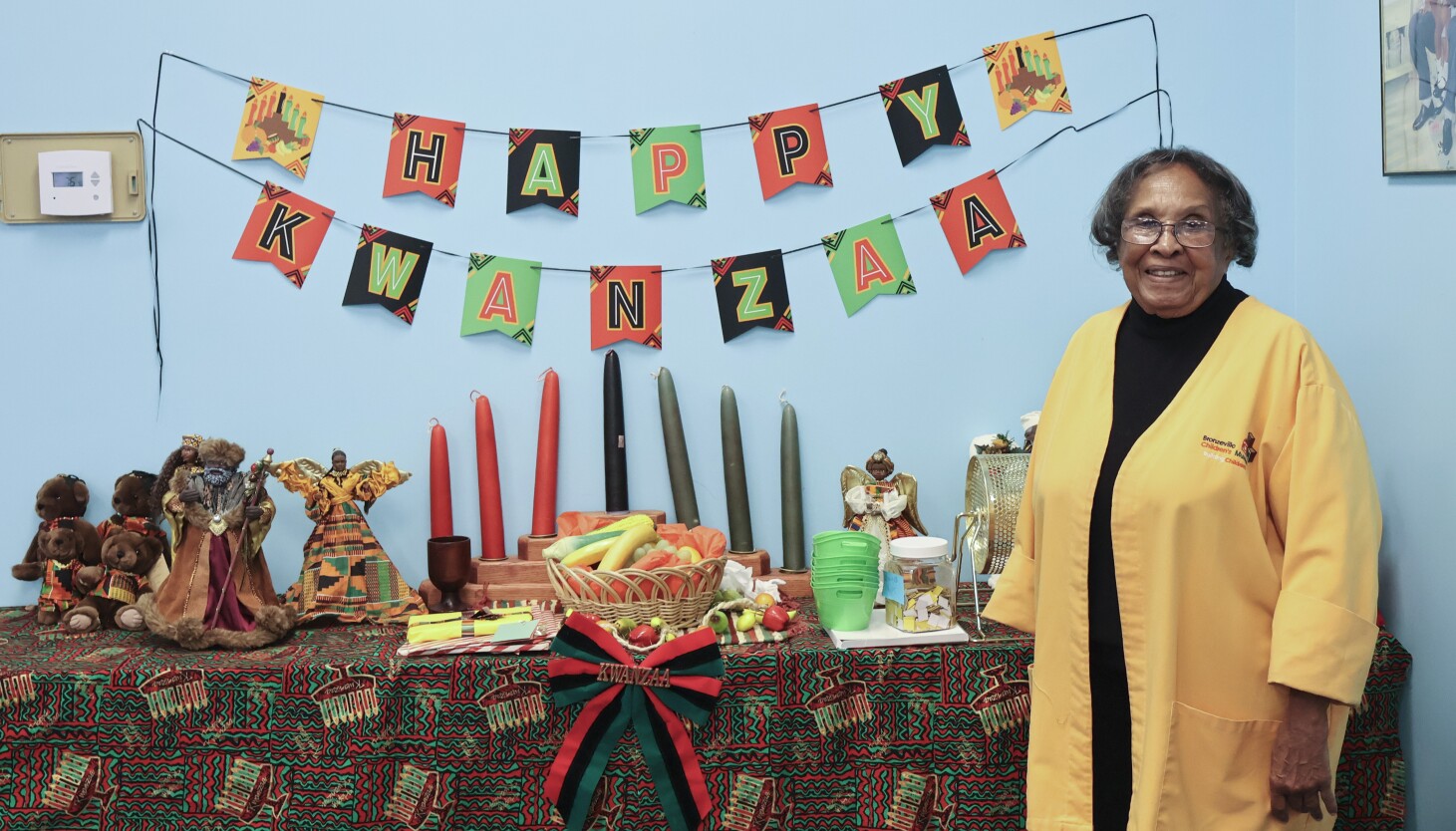Chicago-area Kwanzaa celebrations emphasize unity and community
The seven principles of Kwanzaa will be celebrated across the Chicago area this week, beginning Thursday. While rooted in African American culture, organizers emphasize the holiday’s relevance to all people. Malcolm X College, for example, will host a week-long celebration featuring live music, art, shopping markets, and dance performances from 10 a.m. to 6 p.m. daily on the first floor of the college (1900 W. Jackson Blvd). Malcolm X College President David Sanders highlights the holiday’s focus on unity, stating, “It’s relevant to all people if you really understand the true essence of what Kwanzaa is about.” He believes the holiday’s emphasis on unity combats the divisive political climate, urging a focus on “figuring out what’s the best course of action” as a nation. Sanders emphasizes that Kwanzaa is about “defining and remembering the principles that made us great,” referencing the seven principles: Umoja (unity), Kujichagulia (self-determination), Ujima (collective work and responsibility), Ujamaa (cooperative economics), Nia (purpose), Kuumba (creativity), and Imani (faith).
At the Bronzeville Children’s Museum, founder Peggy Montes is preparing for the museum’s annual Kwanzaa celebration. Montes, 88, describes the importance of the holiday, stating, “It’s important because it’s the celebration of the culture and the history of our African-American people here in the United States and their contributions that they have made.” The museum, which Montes notes is the only African-American history museum for children, will host a Kwanzaa celebration Thursday afternoon featuring storytelling, crafts, singing, and face painting for children aged 4-9. A traditional Kwanzaa altar, complete with a kinara (candleholder), seven candles, and a basket of fruit and vegetables, will be the centerpiece.
Chi-Village, led by Sobenna Worrill, is also holding its second annual Kwanzaa celebration Thursday at the Dr. Conrad Worrill Track & Field Center (10201 S. Cottage Grove Ave). Worrill, daughter of the late Chicago activist Conrad Worrill, views Kwanzaa as “an opportune time” for Black Americans to prepare for the coming year and strengthen community bonds. The celebration will include wellness workshops, vendors, pop-up shows, and fashion shows. Worrill emphasizes that Kwanzaa, while an African-American tradition, is a cultural holiday celebrating the African diaspora and its shared traditions, not a religious holiday meant to replace Christmas. The event aims to ensure the continuation of Kwanzaa traditions for future generations.


